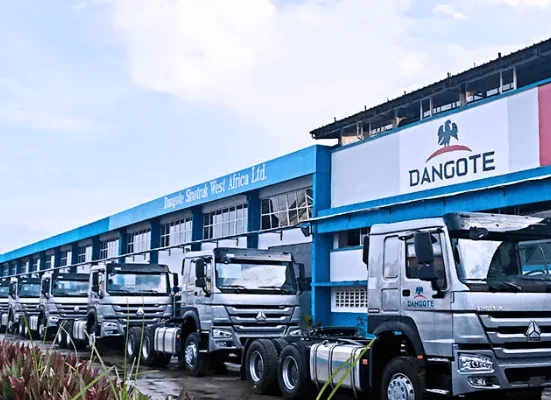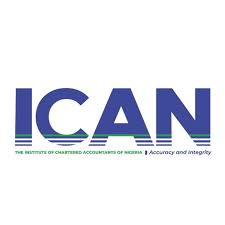Zakat stands as one of the core pillars of Islam, quietly shaping the lives of millions across Nigeria and the African diaspora. Brace yourself. Over ₦8.8 million is now the gold-based nisab threshold for zakat in Nigeria. Yet this number barely scratches the surface. The true story is how zakat’s structured approach does far more than redistribute wealth, transforming entire communities and rewriting the future of social support.
Table of Contents
Quick Summary
| Takeaway | Explanation |
| Zakat is a mandatory charitable obligation | Zakat requires Muslims with wealth exceeding a specific threshold (nisab) to contribute 2.5% of their wealth annually, serving as both a financial and spiritual duty. |
| Understanding nisab is crucial | The nisab threshold is used to determine zakat liability and varies based on gold and silver measures; it ensures individuals contribute based on sustained financial capacity. |
| Zakat fosters community development | Effective zakat distribution not only alleviates poverty but also supports education, healthcare, and entrepreneurial initiatives, creating sustainable economic mobility within communities. |
| Zakat is distinct from general charity | Unlike voluntary donations (Sadaqah), zakat is structured, has specific eligibility criteria, and is mandatory for those who meet the wealth threshold, reflecting its spiritual and social significance. |
| Clarifying common misconceptions is vital | Many misunderstandings surround zakat’s timing, applicability, and asset exemptions, emphasising the need for ongoing education to ensure correct calculations and contributions. |
What Is Zakat and Why Is It Important?
Zakat represents a fundamental pillar of Islamic financial and social responsibility, transcending mere monetary transaction to embody a profound spiritual and social commitment. At its core, zakat is a mandatory annual charitable contribution required from Muslims who meet specific wealth thresholds, designed to purify wealth and support community welfare.

The Spiritual and Social Dimensions of Zakat
In Islamic theology, zakat is more than a financial obligation. According to research from the International Zakat Foundation, it serves as a critical mechanism for achieving sustainable development goals by addressing systemic economic inequalities. The practice represents a profound spiritual act of wealth purification and social responsibility, where those with financial means actively contribute to supporting vulnerable community members.
The calculation of zakat follows specific Islamic guidelines, typically requiring individuals to donate 2.5% of their accumulated wealth exceeding a minimum threshold called nisab. This systematic approach ensures a structured method of wealth redistribution that targets poverty alleviation and social justice. Wikipedia notes that the practice is considered one of the Five Pillars of Islam, underscoring its fundamental importance in Muslim religious practice.
Economic and Social Impact of Zakat
Zakat’s significance extends far beyond individual spiritual growth. Research demonstrates that when effectively implemented, zakat can create substantial socio-economic transformations. Academic studies from Islamic economic research institutions highlight its potential to address critical societal challenges such as poverty, hunger, and income inequality.
The mechanism works by creating a cyclical economic model where wealth is continuously circulated within communities. Wealthy individuals contribute a portion of their assets, which are then redistributed to specific categories of recipients including the poor, needy, those in debt, and individuals working in zakat administration. This approach ensures that economic resources do not stagnate among the affluent but actively support broader social welfare.
For Nigerian Muslims and those in the African diaspora, understanding zakat represents more than a religious obligation. It embodies a comprehensive approach to social responsibility, community development, and economic empowerment. By participating in zakat, individuals contribute to a larger ecosystem of mutual support and collective progress, reinforcing social bonds and addressing systemic economic challenges.
Ultimately, zakat serves as a powerful instrument of social equity, transforming individual wealth into a collective resource that uplifts entire communities. Its principles of compassion, shared responsibility, and economic justice continue to provide a robust framework for addressing socio-economic disparities in contemporary Muslim societies.
Essential Rules and Calculation of Zakat
Zakat calculation involves a precise set of guidelines that determine eligibility, asset types, and payment requirements for Muslims seeking to fulfill this crucial religious obligation. Understanding these rules is essential for accurate and meaningful zakat contributions.
Determining Zakat Eligibility and Nisab Threshold
According to Islamic financial guidelines, zakat becomes obligatory when an individual’s wealth exceeds the nisab threshold. This threshold is traditionally calculated based on two standard measures: gold and silver. In the Nigerian context, recent research indicates the nisab can be approximately ₦8,854,480 when calculated using gold prices, or between ₦600,000 and ₦800,000 when using silver as a reference.
The nisab serves as a critical benchmark for determining zakat liability. Muslims must own wealth consistently for one lunar year above this threshold before zakat becomes payable. This ensures that the obligation applies to those with sustained financial capacity, rather than temporary or fluctuating wealth.
To clarify the different nisab thresholds and their relevance, the following table summarises the Nigerian context for 2025:
| Calculation Method | Approximate Nisab Threshold (NGN) | Notes |
| Gold-based | ₦8,854,480 | Calculated using gold prices |
| Silver-based | ₦600,000 – ₦800,000 | Calculated using silver prices |
Zakat-Eligible Assets and Calculation Methods
Islamic scholarship highlights that zakat applies to various asset categories, extending beyond simple cash holdings. Zakat-eligible assets typically include:
-
Cash savings and bank deposits
-
Gold and silver jewelry
-
Business inventory and investments
-
Agricultural produce
-
Livestock
The standard zakat rate is 2.5% of total eligible assets. This calculation requires careful accounting of all assets that have been held continuously for one lunar year. For business owners, this includes not just cash but also the market value of inventory, investments, and other productive assets.
Practical Considerations for Zakat Payment
Effective zakat calculation demands meticulous record-keeping and an understanding of specific Islamic financial principles. Individuals must assess their total wealth, subtract personal assets like primary residence and essential household items, and then calculate the zakat amount on the remaining eligible wealth.
For Nigerian Muslims and those in the African diaspora, consulting local Islamic financial experts or reputable zakat calculation resources can provide precise guidance. Many online calculators and Islamic financial institutions now offer specialized tools to help individuals accurately determine their zakat obligations.
It is crucial to recognize that zakat is not just a financial transaction but a spiritual practice of wealth purification and social responsibility. By carefully following these rules, Muslims ensure they are fulfilling a fundamental religious duty while contributing to broader community welfare and economic justice.
Ultimately, understanding and correctly implementing zakat rules demonstrates a commitment to Islamic principles of economic equity and social support. The precision of these guidelines reflects the thoughtful approach of Islamic financial ethics in addressing economic disparities and promoting collective well-being.

Zakat’s Impact on Nigerian and African Communities
Zakat plays a transformative role in addressing socio-economic challenges across Nigerian and broader African Muslim communities, offering a structured approach to poverty alleviation and community development. Beyond its religious significance, zakat emerges as a powerful tool for social and economic empowerment.
Poverty Reduction and Economic Resilience
Research from Sokoto State demonstrates the substantial impact of zakat on community welfare. Studies reveal that strategic zakat distribution significantly reduces poverty levels and improves individual livelihoods. In Kano State, economic research indicates that zakat beneficiaries who invest their proceeds in income-generating activities experience markedly reduced chances of remaining in poverty.
The mechanism works by providing direct financial support to vulnerable populations, enabling them to access resources for education, healthcare, and entrepreneurial activities. This approach goes beyond temporary relief, creating sustainable pathways for economic mobility and community development.
To illustrate the primary areas where zakat benefits communities, here is a summary table of key impacts:
| Area of Impact | Examples of Zakat Support |
| Poverty Reduction | Direct financial assistance to vulnerable households |
| Education | Scholarships for underprivileged students |
| Healthcare | Medical support for low-income families |
| Economic Empowerment | Microfinance & support for small businesses |
| Skills Development | Training and vocational programmes |
| Crisis Response | Immediate relief during emergencies (e.g., pandemics) |
Crisis Response and Community Resilience
A comprehensive study during the COVID-19 pandemic highlighted zakat’s critical role in crisis management. In Bauchi State, properly managed zakat and related Islamic financial instruments demonstrated remarkable effectiveness in supporting communities during unprecedented economic challenges. The research showed how targeted financial interventions could provide immediate relief while simultaneously building long-term economic resilience.
For Nigerian and African diaspora communities, zakat represents more than a charitable contribution. It embodies a comprehensive social security system that addresses systemic economic inequalities. Community-driven initiatives leverage zakat funds to support critical areas such as:
-
Educational scholarships for underprivileged students
-
Healthcare support for low-income families
-
Microfinance programs for aspiring entrepreneurs
-
Skills training and vocational development
Sustainable Community Development
The strategic implementation of zakat transcends immediate financial assistance. It creates a cyclical economic model that empowers individuals and strengthens community infrastructure. By redistributing wealth systematically, zakat challenges economic disparities and promotes social mobility.
Particularly in regions experiencing economic volatility, zakat offers a reliable mechanism for community support. It operates independently of government interventions, providing a grassroots approach to addressing socio-economic challenges. This community-driven model ensures that resources are allocated efficiently, targeting those most in need with precision and cultural sensitivity.
For Nigerian Muslims and the African diaspora, understanding zakat’s broader impact is crucial. It represents a powerful instrument of social justice, transforming individual contributions into collective progress. The practice embodies principles of mutual support, economic empowerment, and shared responsibility that extend far beyond traditional charitable giving.
Ultimately, zakat demonstrates the potential of faith-based financial practices to create meaningful social change. By combining spiritual obligation with strategic economic intervention, it offers a unique approach to community development that resonates deeply within African Muslim societies.
Common Questions and Misconceptions about Zakat
Zakat represents a complex financial and spiritual practice that often generates numerous questions and misunderstandings among Muslims and non-Muslims alike. Clarifying these misconceptions is crucial for accurate understanding and proper implementation of this fundamental Islamic financial obligation.
Differentiating Zakat from Other Forms of Charity
According to religious scholars, one of the most prevalent misconceptions is conflating zakat with general charitable giving. Zakat is fundamentally different from voluntary charitable contributions like Sadaqah. Religious media resources emphasize that zakat is a mandatory religious obligation with specific calculation rules, whereas Sadaqah represents voluntary, discretionary giving.
The key distinctions include precise eligibility criteria, mandatory calculation based on wealth thresholds, and specific recipient categories. Unlike optional charitable donations, zakat is a structured financial requirement for Muslims possessing wealth above a specified threshold.
The table below compares zakat and sadaqah to clarify their key differences:
| Aspect | Zakat | Sadaqah |
| Nature | Mandatory (obligatory) | Voluntary (optional) |
| Calculation | Fixed: 2.5% of eligible wealth over nisab | No fixed amount |
| Eligibility Criteria | Applies to Muslims owning wealth above nisab | Open to all Muslims |
| Applicable Assets | Wealth exceeding threshold | Any possessions or funds |
| Recipient Restrictions | Specific categories (e.g., poor, needy) | Wide, at donor’s discretion |
Timing and Applicability of Zakat
International Islamic resources highlight another significant misconception: the belief that zakat must be paid exclusively during Ramadan. In reality, zakat becomes due when an individual’s wealth continuously exceeds the nisab threshold for a complete lunar year, irrespective of the calendar month.
Many Muslims mistakenly believe that:
-
Zakat is only payable during Ramadan
-
Zakat applies to all personal possessions
-
Zakat calculations are uniform across different asset types
These assumptions can lead to incorrect calculations and misunderstandings about the true nature of this financial obligation.
Asset Exemptions and Precise Calculations
Comprehensive Islamic financial guides clarify that not all personal assets are subject to zakat. Critical exemptions include:
-
Primary residential properties
-
Personal clothing
-
Household furniture and essential items
-
Tools used for personal professional work
Zakat specifically applies to wealth held for investment, business purposes, or savings that exceed the nisab threshold. This nuanced approach ensures that the obligation targets accumulated wealth rather than essential personal resources.
For Nigerian Muslims and those in the African diaspora, understanding these distinctions is crucial. Zakat is not merely a financial transaction but a comprehensive spiritual and social mechanism designed to promote economic justice and community support.
Ultimately, dispelling these misconceptions requires ongoing education and dialogue. By promoting accurate understanding, Muslim communities can ensure that zakat fulfills its fundamental purpose of wealth purification, social responsibility, and economic empowerment. Consulting local Islamic financial experts and reputable resources can provide personalized guidance tailored to individual circumstances.
The complexity of zakat underscores its significance as more than a simple charitable contribution. It represents a sophisticated financial system embedded with profound spiritual and social principles, requiring careful understanding and thoughtful implementation.
Frequently Asked Questions
What is zakat and why is it important in Islam?
Zakat is a mandatory charitable obligation for Muslims, requiring them to donate 2.5% of their wealth that exceeds a certain threshold (nisab) annually. It serves both as a financial and spiritual duty, promoting wealth redistribution and supporting community welfare.
How is the nisab threshold determined in Nigeria for zakat?
In Nigeria, the nisab threshold is approximately ₦8.8 million when calculated using gold prices. This is significantly lower when using silver, with estimates ranging between ₦600,000 and ₦800,000. The nisab serves as a measure to determine zakat liability.
What types of assets are eligible for zakat?
Zakat applies to various asset categories including cash savings, bank deposits, gold and silver, business inventory, agricultural produce, and livestock. Personal items like a primary residence and essential household goods are exempt from zakat calculations.
When should zakat be paid?
Zakat is due once an individual’s wealth consistently exceeds the nisab threshold for a complete lunar year. It is a common misconception that zakat must only be paid during Ramadan; it can be calculated and paid at any time throughout the year.
Ready to Unlock the Full Impact of Zakat in Your Community?
If you are exploring how zakat can truly change lives for Nigerians and the African diaspora, you know the complexities do not end at calculation. Many struggle with understanding the nisab threshold, tracking eligible assets, and ensuring their contributions create visible transformation. Gaps in reliable information can leave you uncertain about making the right decisions for yourself and your community. That is where trusted, up-to-date guidance becomes invaluable.

Why wait to turn your knowledge into action? Kiin360.com is your gateway to the latest analysis, news, and practical insights on zakat, community development, and financial empowerment. Readers who want to stay informed and make confident, impactful zakat decisions can start by visiting our platform for clear, accessible updates across all sectors that matter most to Nigerians and the wider diaspora. Discover more today and become an active part of a community building a stronger, fairer future together.







Leave feedback about this